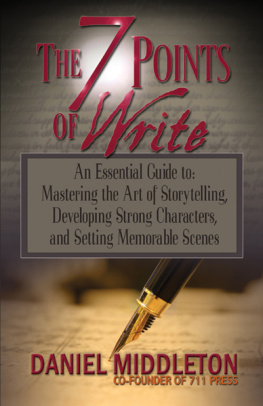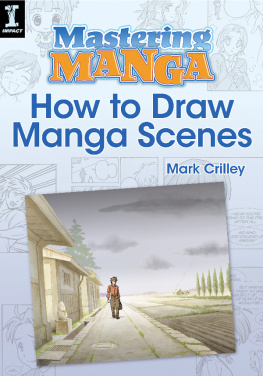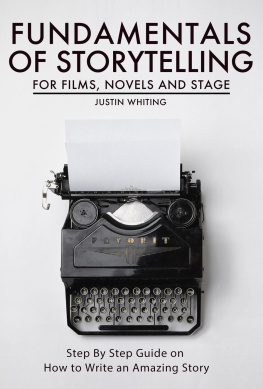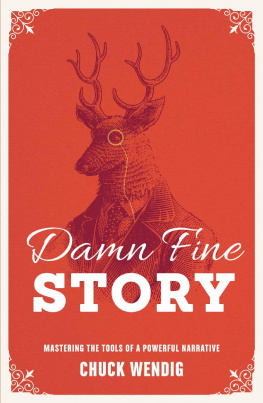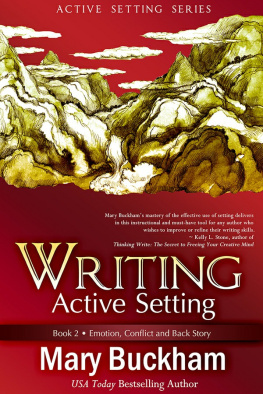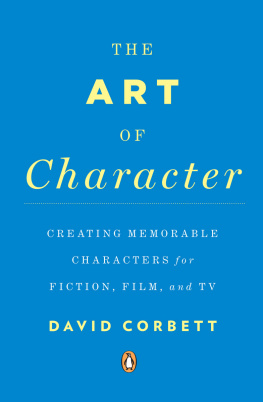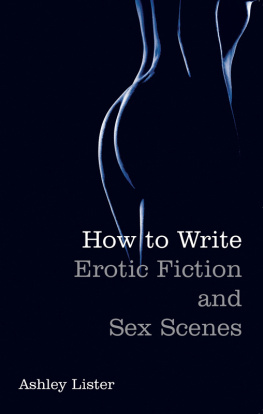

Copyright 2012 by Daniel Middleton. All rights reserved.
No part of this work may be reproduced or transmitted in any form or by any means, electronically or mechanically, including photocopying and recording, or by any information storage or retrieval system without the prior written permission of the publisher, unless such copying is expressly permitted by federal copyright law. Address inquiries to Permissions, 711 Press, P.O. Box 33, New York, New York 10034.
For information about this and other 711 Press titles and products, visit us on the World Wide Web at:
www.711press.com
Cover and Interior Design by Scribe Freelance
www.scribefreelance.com
ISBN: 978-1-935702-10-8
Published in the United States of America
For my wife, Karen,
without whom I would not have made it this far;
and my daughter, Naomi,
who gives me reason to go even farther.
I NTRODUCTION

W HILE THERE ARE droves of how-to books currently on the market that focus on writing well and liberally dispense varied instructionsamong them the use of proper word choices, avoiding wordiness, employing active verbs and active voice, and other writerly rules and elements of writing stylethis book will focus on something those books do not offer: how to tap into the writer in all of us and unearth the interesting stories and characters that are buried deep within. How you can approach this from a technical standpointan area that concerns the mechanics of written language, which necessitates a knowledge of proper grammar, usage, sentence structure, and the principles of composition, phrasing, punctuation, etc.involves lessons that can be learned elsewhere. What this book will attempt to do is teach you how to draw from the deep well of experience that is at the core of every human being and couple it with imagination to effectively tell a memorable tale, regardless of the genre you choose to write in.
If you are a member of the human race who draws breath on a daily basis and can confirm that you have lived a life on any level and have associated with any number of fellow human beings in whatever manner during the course of that life, then you are capable of telling a story, and a compelling one at that, based on, fueled by, or inspired by those experiences.
Throughout my career as a professional book editor, I have come to understand and recognize the nuances of quality fiction and have pinpointed the necessary ingredients a writer needs in order to attain a lofty level of storytelling. You see, one of the main problems many fiction writers face today is a lack of skill when it comes to conveying their thoughts with power and conviction. Many times I have read scenes that fall flat for a variety of reasons, be it weak character sketching, the inability to effectively describe scenery or action, and, not least, poor delivery of dialogue, among many other classic examples. In order to allow your readers to come away satisfied after reading your book, or compel them to reread passages for the sheer power and beauty contained within them, you have to tap into your hidden depths of experience. You must draw power from within, by envisioning a scene so clearly that you begin to act very much like a reporter who is trying to jot down as much of what he or she is witnessing as possible, and as accurately as he or she can.

That is exactly what I will teach you to do!
The seven Points contained in this book were designed specifically for that very purpose, and you will find that, taken together, they form a solid foundation upon which you can begin to hone your craft and greatly improve your storytelling abilities. You can think of the seven Points as a fine-grained whetstone that, if adhered to, will give your writing a keen edge.
After you have completed the seven Points and have absorbed the various lessons within them, you can begin implementing the new methods in your writing, which, for one thing, will enable you to place yourself directly at the center of each scene in your story, where you essentially belong if you intend to successfully translate your vision to the page with forceful expression and to the delight of your readers.
At the end of each Point you will find a worksheet that ties in directly to the particular Point that precedes it. By filling out these worksheets, you will be given in-depth information about your characters and enough fodder for as many interesting situations as you wish to place them in. Your characters will begin to have real purpose as they navigate the winding route of your plot, and the story itself will be rich with details that readers can readily absorb.
D ANIEL M IDDLETON
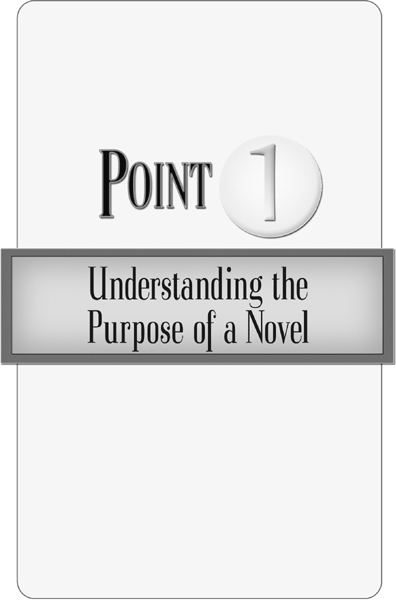
T HE B IG Q UESTION
T HE B IG Q UESTION
T O BEGIN, I ask you, dear reader, What is the purpose of a novel? This is not necessarily related to another question, Why have you decided to write a novel? The second question can have various answers, many, if not all of them, involving some personal agenda on the part of the writer or writers in question. But the answer to the first question, and in all truth, there really is only one true answer (which many may debate), is to entertain. Lets face it: storytelling has always been a form of entertainment, well before books, movies, and television. People, since the dawn of time, have entertained one another with tales. The novel form was invented to continue this tradition and make it available to the masses.
Keeping in mind that a novels mainand in most cases nowadays, sole purpose is to entertain, a writer should be able to approach a book with this singular agenda in mind, abutting it and supplementing it with experimentation, lofty artistic objectives, or other personal goals, so long as the primary agenda remains in full frontal view. A lot of writers, when setting out to write a magnum opus of some kind, or the Great American Novel , lose sight of this singular agenda, placing everything before it, thus leaving their readers scratching their heads at the ridiculousness theyve been mercilessly beset by.
During my brief stint as an anonymous blogger, I dedicated what little time I could spare from my career duties to review books published by mostly amateur writers, usually via print-on-demand. During this time, I happened to criticize one writer for having published a few stories that were absolutely vapid and lacking plots. His best and only defense was that James Joyce was more or less accused of similar literary crimesparticularly those that concern stories without plots. This could have led to a lot of heavy-handed rebuttals on my part, but I decided to digress, because I had no intention of belittling struggling writers, as it is neither my desire nor place to.
I said that to say this: Joyce, Faulkner, Nabokov, Pynchon contemporary writers can use them as an excuse to apply their own brand of experimentation to literature all they wantas though these souls, by so doing, gave contemporary authors license to do so as wellbut bear in mind that all of them experimented in various novels with the goal of entertaining their readers. And I believe all of them succeeded.
Next page
